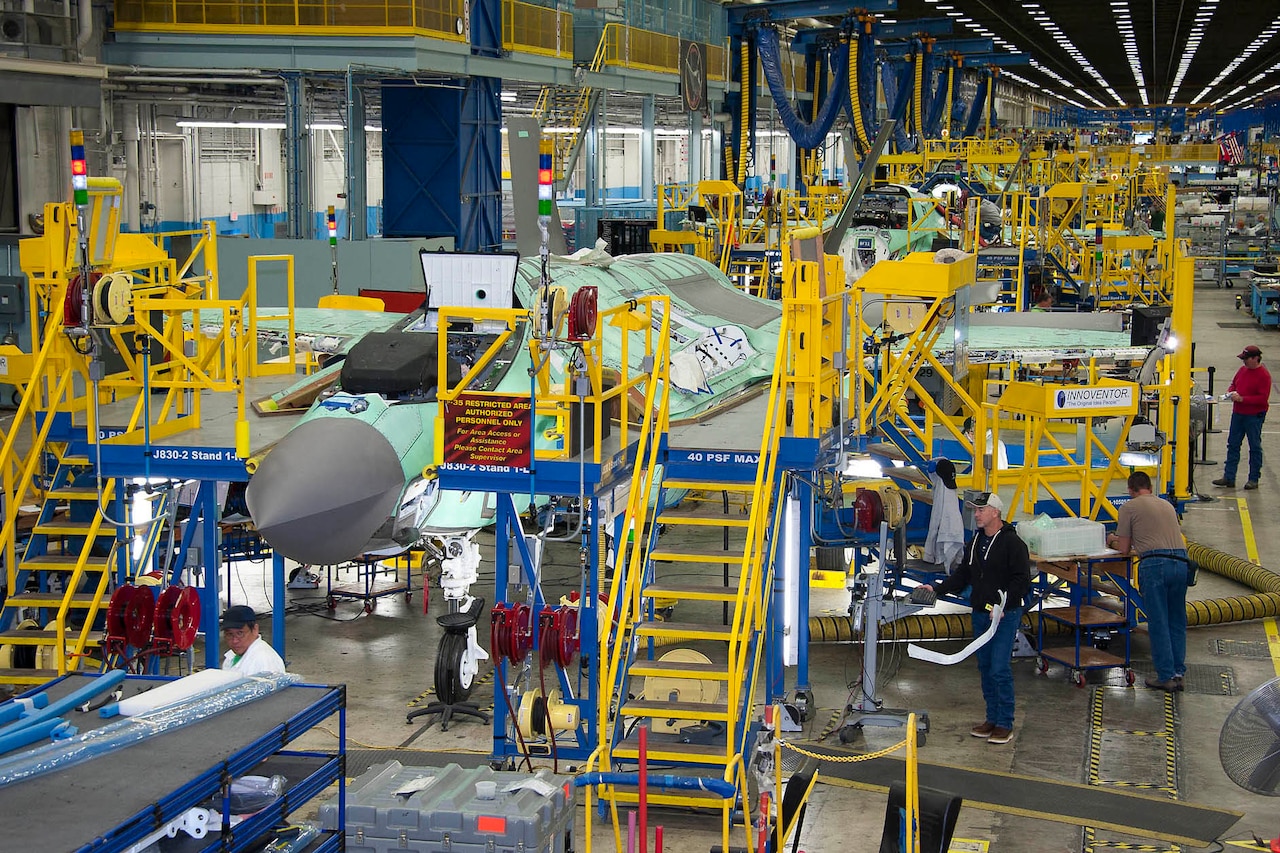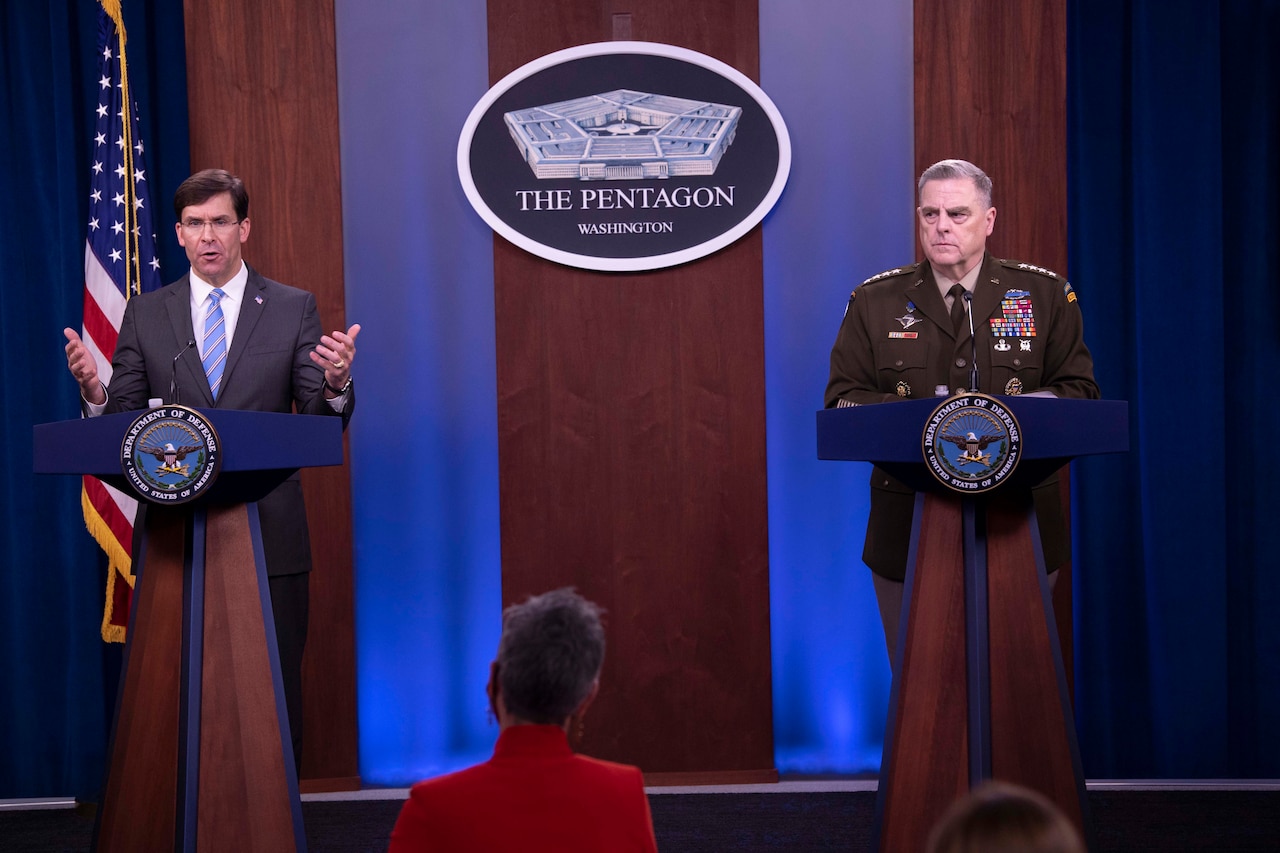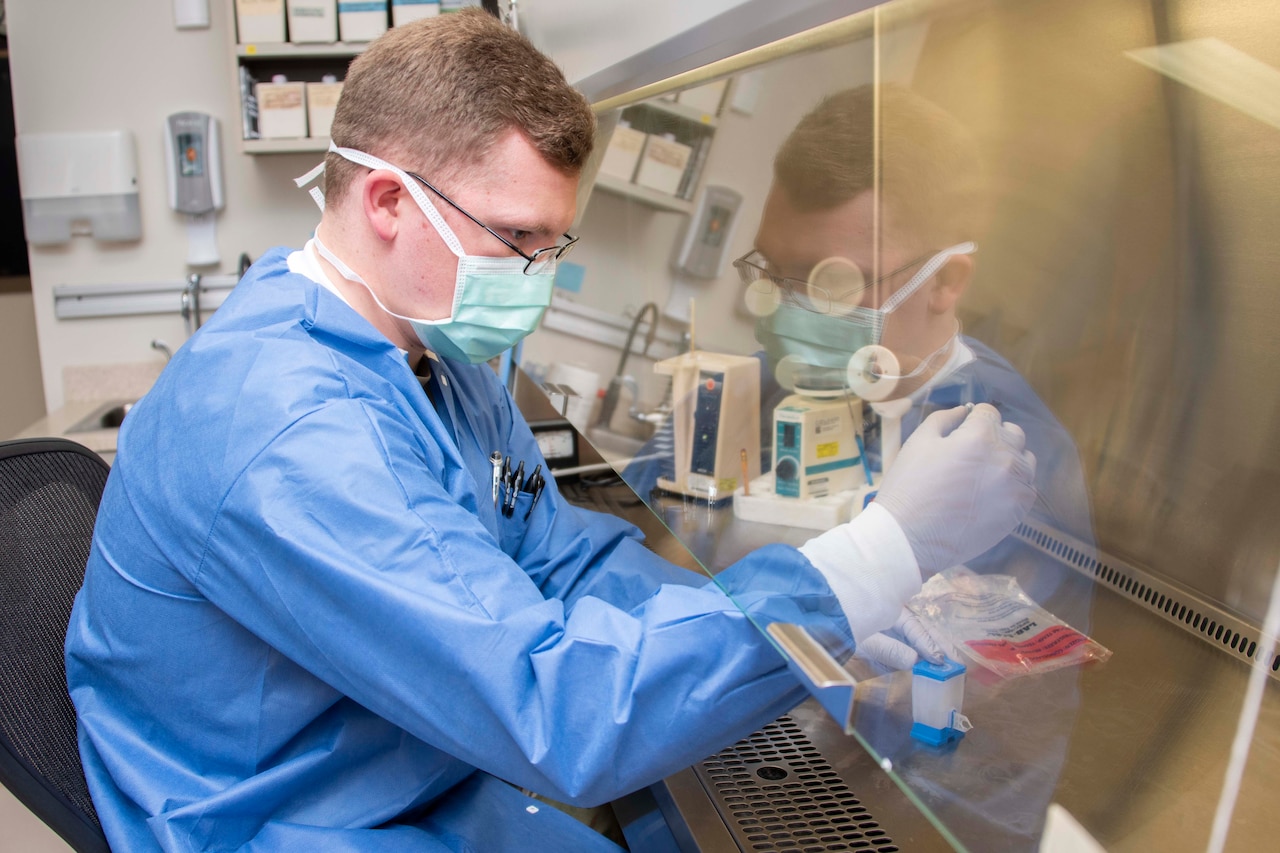May 5, 2020 | BY C. Todd Lopez , DOD News
The Defense Department is using an array of tools to ensure
the defense industrial base stays afloat so it can provide critical materiel
now and remain robust after COVID-19 has passed.
Ellen M. Lord, the undersecretary of defense for acquisition
and sustainment, said last week that DOD is "carefully and
methodically" tracking the state of the defense industrial base, which
includes businesses large and small that have direct business with DOD or
provide important components or support to companies with defense contracts.
"Our acquisition and sustainment team remains focused
on partnering with industry to maintain readiness and drive
modernization," Lord said. "Our industrial policy team continues to
lead multiple industry calls every week with 18 Industrial associations. I am
proud of the department's responsiveness in addressing defense industry
concerns that are outlined during these calls."
One agency heavily involved in ensuring that the defense
industrial base remains strong and capable throughout the COVID-19 pandemic is
the Defense Contract Management Agency, which manages some of the largest
contracts for the department, including that of the F-35 joint strike fighter
aircraft.
Navy Vice Adm. David Lewis, agency director, said when the
first of the COVID-19 closures started happening, he told the defense
industrial base businesses the agency works with that if they stayed open, DCMA
would be there to support them.
"If you're open, we're open," he said. "I
said that, like, Day One or Day Two when this started happening. My point in
that is we need the industrial base to stay open. We're still building
airplanes. We're still building tanks. There are still soldiers, sailors,
airmen and Marines in harm's way around the world. They still need their parts,
they still need their equipment. We're still deploying. People are still
shooting at us. We're still shooting back."
While DCMA works with nearly 10,500 businesses, the actual
defense industrial base is much larger, Lewis said. A sister agency, the
Defense Logistics Agency, also works with many companies, though there may be
great overlap between the companies DLA and DCMA work with. Globally, the
number of domestic and foreign companies in the defense industrial base could
exceed 160,000.
One tool the department is using to ensure the companies
remain viable is a memorandum published in March and signed by Lord. That
memorandum defines the defense industrial base as the industrial complex that
enables research and development as well as design, production, delivery and
maintenance of military weapons systems/software systems, subsystems and
components or parts, as well as purchased services to meet U.S. military
requirements.
In the memorandum, Lord identifies the defense industrial
base as a critical infrastructure sector as defined by the Department of
Homeland Security. This allows companies to stay open even when other
businesses have been directed to close.
"I've given the memorandum to every single DCMA
employee, and we have given those to every company that wanted one and told
them to give them to their employees," Lewis said. "That has been
hugely helpful."
Another tool the department is using to help are changes
made to increase the "progress payment" rate on some defense
contracts. Those payments are made to
improve cash flow for industry involved in the ongoing production of
large defense items.
"There are about 1,500 contracts that [DCMA] pays every
couple of weeks based on the progress that they've done," Lewis said.
"They don't have to deliver a product. It's such an expensive thing that
we pay them incrementally as they build it."
The progress payment rate increase from 80% to 90% for large businesses and from
85% to 95% for small businesses, Lewis said. "That has the effect of
pushing $3.3 billion into the defense industrial base," he added. Last
week, Lord said about $1.2 billion in invoices were processed at the higher
progress payment rate.
"We have spoken with each of our major prime companies,
and they have each confirmed their detailed plans to work with their supply chains
to accelerate payments, and to identify distressed companies and small
businesses," she said. "I want to particularly commend Lockheed
Martin, who publicly committed to accelerating $450 million dollars to their
supply chain, again, focusing on distressed and small businesses who need it
most."
It's important that extra funding from the government gets
pushed down from large "prime" contractors — such as Lockheed Martin
or Boeing — to their smaller suppliers, Lewis said, because those small
businesses are also a critical part of the defense industrial base and are more
vulnerable to the effects of the COVID-19 pandemic.
"If you are a big company, you've got cash in the bank,
you've got money on hand, you can probably work through things financially — it
may not be pleasant, but you're OK," Lewis said. "If you're a small
wiring harness maker, you might be living paycheck to paycheck, as a
company."
Lewis also said that DCMA is working with companies to
continue to provide payments even if those businesses are unable to keep the
original agreed-upon schedule for product delivery.
"We'll give them grace — if you're supposed to deliver
10 this week, but you completed eight — that's fine," he said. "We've
allowed partial payments. We'll relax some of our normal contract provisions
for penalties ... we'll relax our penalties if you're late on deliveries. So
you're still producing, you're compliant with the [Centers for Disease Control
and Prevention] guidelines for the health of your workforce ... but you're
still producing product, which means you're still getting paid, which means you
have an income stream and you can stay open."
DOD also has made changes in what's allowed within a
"request for equitable adjustment." The changes were part of the
recent Coronavirus Aid, Relief and Economic Security Act.
Lewis likened a request for equitable adjustment as
something that might be used by a small business to recoup additional,
unforeseen costs associated with a contract. A contractor, he said, might agree
to replace a customer's roof for $15,000. If during the execution of that work
the roofer discovers extensive termite damage to the customer's home, then this
would increase the cost of the roofing work. The roofer would need to work with
the customer to get additional funds beyond what was initially agreed upon.
Businesses doing work with the government who suffer similar
unforeseen circumstances — such as costs associated with COVID-19 — would use
the request for equitable adjustment to seek additional funding.
"The company could say, well, 'I was supposed to
deliver ten, but because of the pandemic I could only deliver eight, ... [or]
it took me longer to make up the difference and that cost me extra, I had to
expedite things, I had to air-freight stuff, so I'm requesting a request for
equitable adjustment,'" Lewis said.
Part of the DCMA mission involves having representatives
embedded in businesses who would witness the kinds of problems that might give
rise to a request for equitable adjustment, Lewis said.
"We're the ones that will say, 'This is what happened
on April 29 at a facility with this delivery,' for instance," he said.
"So we provide the facts to the contracting activity, the buying activity,
the company provides a request for equitable adjustment, and then the buying
activity and the company negotiate that."
A worker wears a welder’s hood flipped up on her head. She
manipulates a roll of wire. A large vehicle sits to her left.
While businesses in the defense industrial base can submit a
request for equitable adjustment at this point, Lewis said he's not aware that
any company has done so.
Lord said that, as of last week, 93 of the companies that
DCMA tracks are closed, and that's down 13 from the week before. As a result of
COVID-19, she said, a total of 141 of those companies had closed and then
reopened. She said the trend now is that DOD is seeing more companies reopening
from a closure, than new companies closing. Of the companies tracked by DLA,
she said, 437 were closed last week, with 237 having closed and reopened, up
almost 100 companies from a week before.
While any company within the defense industrial base suffers
when it's forced to close as a result of COVID-19, small companies are hit
especially hard, Lewis said. But the worst case scenario, he said, is if a
company is closed permanently as a result of COVID-19. It's a loss for that
business, and for those employees who are out of a job. It's also, he said, a
loss to DOD.
"A lot of our stuff is niche, specialty
equipment," he said. "If a company packs up, shuts down, and sends
their people away, the question is how many other companies do that work? There
might only be one, there might be just a couple. It would be a challenge if we couldn't get the material that we
needed to support the warfighter."










